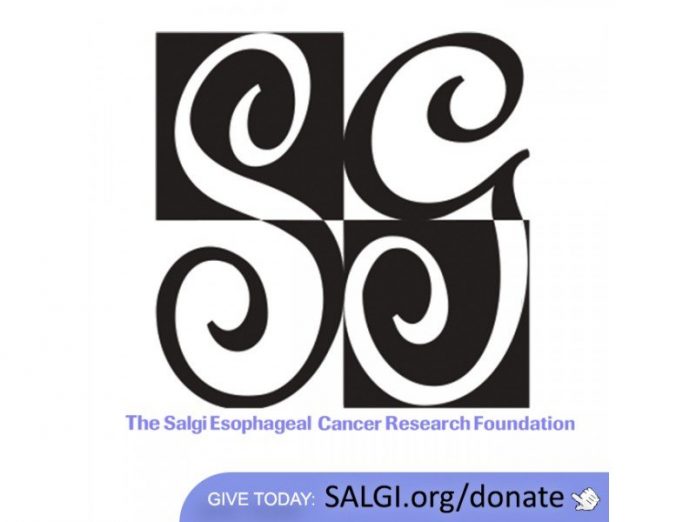EAST GREENWICH – The Salgi Esophageal Cancer Research Foundation has awarded its second grant in seven years, adding $62,597 to the research coffers of the Virginia Mason Medical Center, where researchers are developing a breath test for detecting esophageal cancer.
The East Greenwich-based nonprofit awarded the grant in November to principal investigator Dr. Donald Low at the center. Dr. George Hanna of St. Mary’s Hospital Medical School, a constituent school of the Imperial College of London, is co-investigator. Their research seeks to establish a noninvasive test for the detection of esophageal cancer based upon the unique signature of volatile organic compounds within exhaled breath and to analyze exhaled VOCs in response to therapeutic intervention in patients, according to the Salgi Foundation.
One of the primary risk factors for esophageal cancer is gastroesophageal reflux disease, also known as GERD or acid reflux disease, with chronic heartburn the most common symptom, according to the foundation. Additional risk factors include obesity, heavy drinking, poor nutrition and smoking and/or use of tobacco products.
There are no current standard or routine screening procedures to detect esophageal cancer in its early stages, said Low. Current guidelines recommend referral for endoscopy, “Only in the setting of ‘red-flag’ symptoms that are frequently associated with inoperable disease,” Low said.
Such “red-flag” symptoms, which include difficulty swallowing, appear once esophageal cancer has become advanced, which puts the overall five-year survival rate at only 19.2 percent, according to the foundation.
The first grant the foundation awarded, in 2015, was $50,000 to fund the research of Dr. Carlos Minacapelli, program director at Rutgers Robert Wood Johnson Medical School, whose research suggests that acid and bile produced in gastroesophageal reflux disease can reprogram normal cells into disease-causing cells.
Linda Molfesi, president of the foundation, said part of the reason her foundation has funded so few grants for relatively low sums since she founded it in 2011 is that fundraising for research into esophageal cancer is “extremely difficult.”
Few people donate to research to treat and prevent the disease, she said. The disease itself is not well-known.
“I didn’t know about the dangers of esophageal cancer until my family was directly affected by it,” Molfesi said.
After her father suffered from chronic heartburn for years, disregarded by doctors as “just heartburn,” he began to have trouble eating, complaining that food was getting stuck in his throat, Molfesi said. They learned his heartburn was actually GERD, and that his difficulty swallowing is known as dysplasia and usually occurs at later stages of esophageal cancer, when it has become advanced.
“Unfortunately, this was true for my father,” Molfesi said.
Despite surgery to remove his damaged esophagus and connecting what was left to his stomach, followed by chemotherapy and radiation, Molfesi’s father died a year later.
Molfesi began the foundation after her family’s experience to offer education and help fund research to diagnose, prevent and cure esophageal cancer.
“The whole reason we started this is because so little is being done,” Molfesi said.
To donate directly to the Salgi Esophageal Cancer Research Foundation, visit salgi.org/donate.
Rob Borkowski is a PBN staff writer. Email him at Borkowski@PBN.com.












